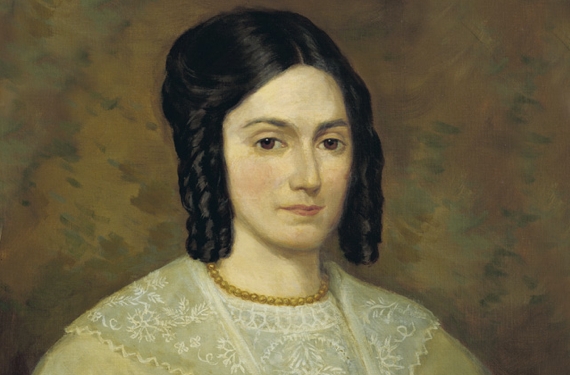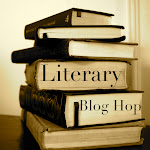 |
| Emma Hale Smith (via) |
Reviewed by Ingrid
Published: 1984
It's about: An academic biography of Emma Hale Smith, first wife of Joseph Smith Jr., founder of Mormonism, written by two Mormon women. Emma Smith is a sensitive spot in Mormon history because she refused to accept that her husband received revelation from God to practice polygamy. After her husband died, Emma refused to join Brigham Young - the new leader and second prophet of the LDS church - and the majority of the Mormon community as they trekked west to establish themselves in the Salt Lake Valley. Emma had a very prickly relationship with Brigham Young, the two eventually became bitter enemies. Brigham Young's words about Emma Smith have survived in the church's memory much more so than Emma Smith's words have, so she has come to have a negative reputation within the church, though it has lightened up in recent years. She is now most often represented as a more romanticized and idealized version of herself in LDS produced movies about Joseph Smith, Jr. and the early days of the church. She is also often given a nod for being the first president of the Relief Society, a society for women that still exists in the church today. Her firm refusal to accept polygamy and her life after the death of her husband are rarely discussed in official histories.
Interestingly, because of the authors' portrayal of church history figures in this book, the leaders of the LDS church were angry about its publication. An article in Dialogue explains that LDS Apostle Dallin H. Oaks told Linda Newell that the book "'represents a non-traditional view of Joseph Smith'" and "may damage the faith of church members who read it." (45). However, despite what I thought before I did a little research for this review, the authors received no church discipline besides being banned from talking about church history in public.
 I should note that LDS scholarship can be difficult to navigate because many LDS church history scholars come to their research with a significant bias. Mormon apologists have an obvious bias which clearly shows in what sources they prefer and those they throw out. Many other LDS scholars developed their interest in the history because they grew up in LDS culture but later left. Their work is also often biased the other way - they feel a strong desire to prove that Joseph Smith could not possibly have been the prophet he claimed he was. (See No Man Knows My History by Fawn Brodie.) There are also scholars in between these two camps who lean slightly one way or the other, such as historian and believer Richard Bushman, who wrote the more recent (and also more academically sound) cultural biography of Joseph Smith, Jr., Rough Stone Rolling.
I should note that LDS scholarship can be difficult to navigate because many LDS church history scholars come to their research with a significant bias. Mormon apologists have an obvious bias which clearly shows in what sources they prefer and those they throw out. Many other LDS scholars developed their interest in the history because they grew up in LDS culture but later left. Their work is also often biased the other way - they feel a strong desire to prove that Joseph Smith could not possibly have been the prophet he claimed he was. (See No Man Knows My History by Fawn Brodie.) There are also scholars in between these two camps who lean slightly one way or the other, such as historian and believer Richard Bushman, who wrote the more recent (and also more academically sound) cultural biography of Joseph Smith, Jr., Rough Stone Rolling. Though the authors of this book are believers, the research seems to me as fair and as close to being without bias as it could be. (Of course, every historian approaches history with a bias of some kind. It's impossible to be completely objective.) Throughout the narrative they name their sources and discuss their legitimacy. For example, stories about Emma from journals of close friends the authors would consider more legitimate, while later statements made in public meetings from church members that followed Brigham Young to Salt Lake City and shared his hatred for Emma, less so. The authors often compare sources side by side and present all the information they could gather with their own commentary.
 |
| photo of Emma Smith Bidamon in her old age (via) |
I was surprised that this book spurred the amount of controversy that it did. If you asked me, I couldn't point to a single thing to which I would expect church leaders to respond to negatively, but I've heard that the church has been more open about these things since I've been around (I was born a few years after this book was published.) The authors try to represent Joseph Smith as Emma saw him, which of course is fair in a biography about Emma. Thanks mostly to quotes from his letters and sermons, Brigham Young looks like a jerk when he talks about Emma, but Brigham Young is known for his temper and for saying all kinds of colorful things. The LDS church, like any large institution, likes to try and control what information is out there concerning its history. Because I myself am a Mormon and a believer, I try to give the church the benefit of the doubt and expect that they have and will respect sound academic research. This isn't always true, though, unfortunately.
But anyway, overall I loved the book. The LDS church is in desperate need of realistic female role models, and I think that Emma Smith's strong will and sense of compassion for those around her is worth admiring. The stories about Emma that most stood out to me where the many, many times she took strangers and orphans into her home. Her second husband even had a child from an affair and when the mother couldn't raise the child, Emma took him and raised him as her own. I wonder if Emma's struggle with polygamy helped her grow stronger emotionally and grow in her compassion.
I loved the realistic and fair representation this book provided of this admirable yet flawed woman. We're all flawed. That's what makes life interesting and worth living.
Verdict: Stick it on the shelf.
Reading Recommendations: If you want to read more about the controversy surrounding the publication of this book, check out pages 40-48 of this article published in Dialogue: A Journal of Mormon Thought.
Warnings: None.
Favorite excerpts: "Emily Partridge [one of the plural wives of Joseph Smith Jr.] perhaps expressed the sentiments of many who knew Emma when she wrote in 1883, 'After the many years I can truly say; poor Emma, she could not stand polygamy but she was a good woman and I never wish to stand in her way of happiness and exaltation. I hope the Lord will be merciful to her, and I believe he will. It is an awful thought to contemplate misery of a human being. If the Lord will, my heart says let Emma come up and stand in her place. Perhaps she has done no worse than any of us would have done in her place. Let the Lord be the judge.'"
What I'm reading next: The Earthquake Machine by Mary Pauline Lowry






